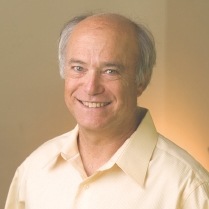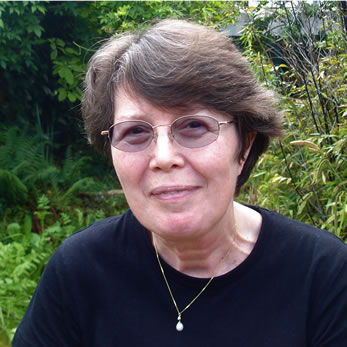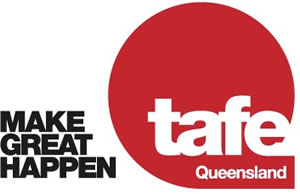Keynote speakers
'Literacy: a learning spiral for life' is pleased to announce the following keynote speakers.
Professor Stephen Reder
Professor of Applied Linguistics at Portland State University
 Stephen Reder is Professor of Applied Linguistics at Portland State University. He has been involved throughout his career in teaching, research and service activities in education, workplace and community settings. Dr. Reder’s research focuses on adults’ lifelong and life-wide literacy, digital literacy and second language development processes.
Stephen Reder is Professor of Applied Linguistics at Portland State University. He has been involved throughout his career in teaching, research and service activities in education, workplace and community settings. Dr. Reder’s research focuses on adults’ lifelong and life-wide literacy, digital literacy and second language development processes.
He has been the Principal Investigator of several recently completed research projects: the National Labsite for Adult ESOL, the Longitudinal Study of Adult Learning (LSAL), and Tutor-Facilitated Digital Literacy Acquisition in Vulnerable Adult Populations. He is currently conducting research and preparing a publication series on the long-term impacts of adult education programs on economic, educational and lifelong learning outcomes.
Professor Reder is the author of numerous publications about adult literacy and second language research and its implications for education and training programs. He recently edited a volume with John Bynner, Tracking Adult Literacy and Numeracy: Longitudinal Studies in Adult Education, published by Routledge. He has published widely on his research in a variety of international journals and frequently presents at national and international conferences.
Dr. Reder has served on the advisory boards of numerous organizations and journals devoted to adult education and literacy and actively works with networks of adult education researchers, practitioners and policymakers at the local, state, national and international levels.
Stephen's abstract
'Adult Literacy Development and Program Impact in Longitudinal Perspective: New Approaches to Research, Evaluation and Policy'
Most research, program evaluation and policy analyses in adult literacy education are based on data reflecting short periods of program participation and short-term follow-ups of learner outcome measures. Although these short temporal frameworks conveniently fit existing patterns of participation and cycles of accountability and funding, they mask longer term learning processes and program impacts. Longitudinal research is needed to reveal these longer-term processes and impacts.
The Longitudinal Study of Adult Learning followed about 1,000 high school dropouts over a ten-year period. Repeated indepth interviews and skills assessments were supplemented with administrative data matched from employment and education agencies. Many adults chose to participate in adult literacy programs while many others did not. Systematic comparisons of their learning trajectories and life outcomes offer important new insights on long-term learning processes and program impacts. Long-term program impacts are larger in size and wider in scope than those seen in short-term studies. Implications of these findings are discussed for future research, program evaluation and improvement, and policy.
Professor Diana Coben, PhD
Director of the National Centre of Literacy and Numeracy for Adults, University of Waikato, New Zealand
 Professor Diana Coben, PhD, is an adult educator who is Director of the National Centre of Literacy and Numeracy for Adults at the University of Waikato, New Zealand and Emeritus Professor of Adult Numeracy at King's College London, UK. She was also a founder-member of the National Research and Development Centre for Adult Literacy and Numeracy (NRDC) in England and was Founding Chair of the international research forum: Adults Learning Mathematics (ALM) www.alm-online.net.
Professor Diana Coben, PhD, is an adult educator who is Director of the National Centre of Literacy and Numeracy for Adults at the University of Waikato, New Zealand and Emeritus Professor of Adult Numeracy at King's College London, UK. She was also a founder-member of the National Research and Development Centre for Adult Literacy and Numeracy (NRDC) in England and was Founding Chair of the international research forum: Adults Learning Mathematics (ALM) www.alm-online.net.
Diana researches and undertakes consultancy, teaches and publishes internationally, specialising in adult numeracy education, policy and politics of adult education from an international comparative perspective and the professional development of adult educators.
She is especially interested in numeracy in safety-critical work contexts and a strong advocate of use-inspired interdisciplinary research, exemplified in her work on numeracy for nursing, e.g., www.nursingnumeracy.info/.
Diana's abstract
The koru and the nautilus shell - visualising growth in literacy and numeracy.
The spiral forms of the nautilus shell - the symbol for this ACAL Conference - and the koru - the Māori word for the looping shape made by a young fern frond before it unfurls - symbolise growth in literacy and numeracy as a learning spiral for life. I shall explore this idea at three levels (at the individual level of learner and tutor; at the level of the organisation; and at the policy level) drawing on international research and work in the National Centre of Literacy and Numeracy for Adults in Aotearoa New Zealand. My focus will be on the ways in which visualisations of growth in literacy and numeracy influence and inspire our work.
Professor Trevor Gale
Professor of Education Policy and Social Justice, Deakin University
 Trevor Gale is Professor of Education Policy and Social Justice at Deakin University, and a past president of the Australian Association for Research in Education. From 2008 to 2011 he was the founding director of Australia's National Centre for Student Equity in Higher Education. He is chief investigator on two current Australian Research Council (ARC) Discovery Grants, one researching the social justice dispositions of secondary teachers in advantaged and disadvantaged Melbourne and Brisbane schools, and the other researching the aspirations of secondary school students in Melbourne's western suburbs.
Trevor Gale is Professor of Education Policy and Social Justice at Deakin University, and a past president of the Australian Association for Research in Education. From 2008 to 2011 he was the founding director of Australia's National Centre for Student Equity in Higher Education. He is chief investigator on two current Australian Research Council (ARC) Discovery Grants, one researching the social justice dispositions of secondary teachers in advantaged and disadvantaged Melbourne and Brisbane schools, and the other researching the aspirations of secondary school students in Melbourne's western suburbs.
He has recently completed research for the National VET Equity Advisory Council on the equity track record of private higher education providers (<http://www.deakin.edu.au/arts-ed/efi/pubs/vet-associate-bachelor-degrees-disadvantaged-learners.pdf). He is a prolific author with publications appearing in high quality international journals and publishers. His latest book is Schooling in Disadvantaged Communities (with Carmen Mills; Springer 2010) and his most recent article is 'Navigating change: A typology of student transition in higher education' published in Studies in Higher Education (http://www.tandfonline.com/doi/full/10.1080/.U4k27qWVtJ0).
Trevor's abstract
'Relating Social Inequality and Education: An assessment of pop and policy text'
Social justice is an enduring interest for adult literacy educators, exemplified in Paulo Freire’s work in the 1960s with poor rural Brazilians for whom literacy was a requirement for active political participation. In twenty-first century nations, the role of education in achieving social justice has taken on new importance, in a context of increasing inequalities between the advantaged and disadvantaged.In this paper I present a normative framework that outlines three ‘spaces of assessment’for examining relations between education and social inequality: (a) real opportunities (i.e. social justice in education); (b) wellbeing (i.e. social justice through education); and (c) critical consciousness and agency (i.e. social justice education). Within these spaces I examine how government policies and pop academic texts name and frame inequality as an issue of/for education (including literacy education). In particular, I identify three silences in how education and social inequality are linked, including the extent to which literacy programs contribute to social mobility in unequal and diverse societies such as Australia.



